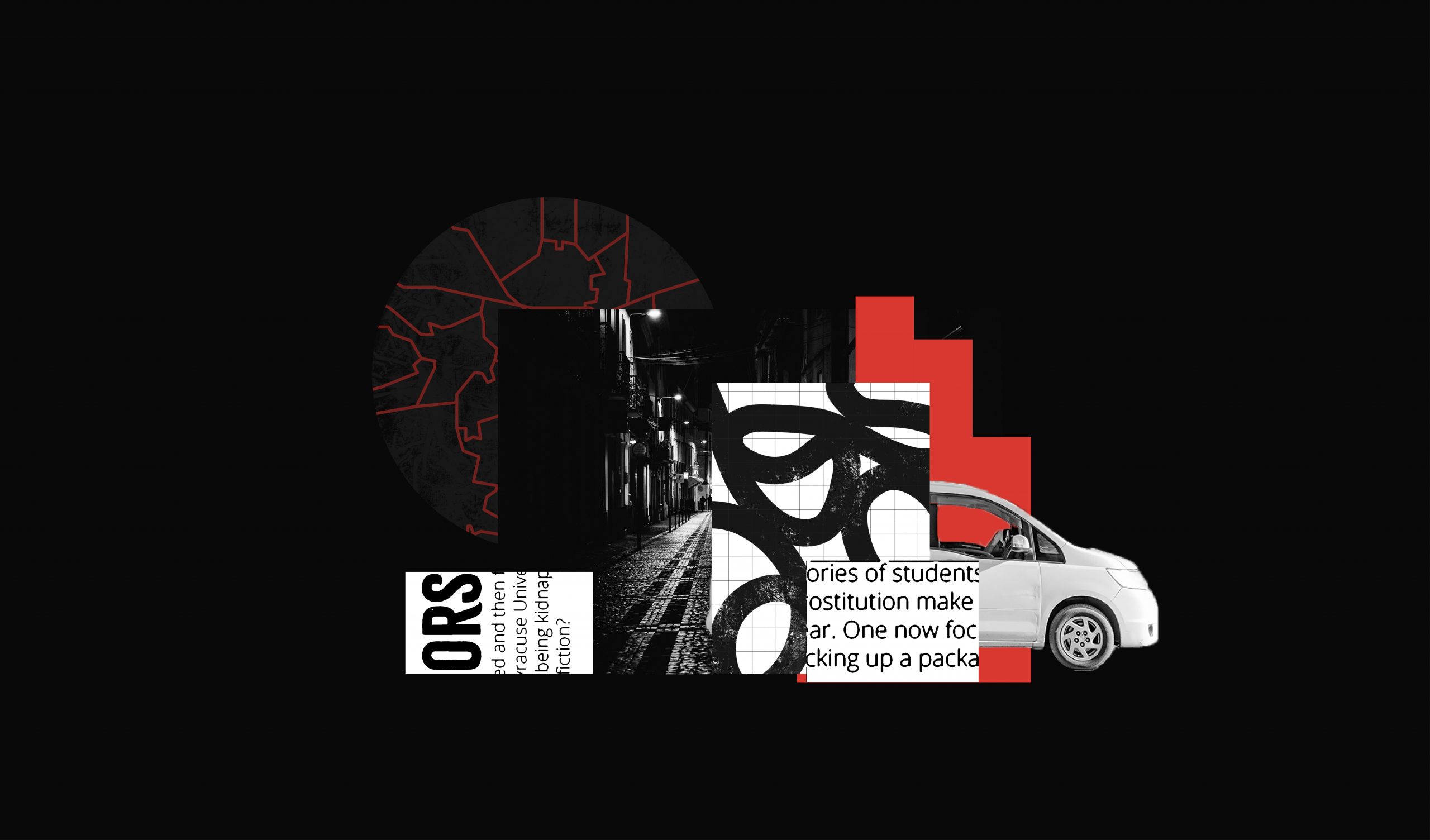
College rumors gone wild
Professor says sharing stories of criminal encounters can form prejudices between SU students and the local community.

am remembers sending a message warning her friends about a woman who approached her car on Comstock Avenue asking for money last September.
What surprised Sam even more was the response. Text after text flooded the group chat with others saying the same thing happened to them, or their friend or a friend of a friend.
Whether it’s in a chat thread, social media app or idle conversation among friends on a porch stoop, the rapid speed of exchanges at SU or any college campus these days gives the sharing of information – whether it’s really true or not – a viral-like nature.
Mention the urban legend about gang initiation on Halloween or the danger of Thornden Park to almost any SU student and they’ll likely recall a story they’ve heard through the grapevine – or maybe they have a story of their own.
But when those stories spread second- or third-hand or more with little chance to know or confirm any validity of the original story, there’s a potentially dangerous side effect in that it can perpetuate harmful racial stereotypes about others.
The Encounter
The details of Sam’s story from early last fall semester match one persistent story tied to SU’s campus.
The 20-year-old television, radio and film junior who requested to only use her first name for privacy concerns said she and a friend were parked outside a house on Comstock at around 9:30 p.m. when a woman wearing scrubs knocked on the car window. Sam rolled down the window a little bit and recalled the woman asking for help.
“She was saying how her daughter goes to Syracuse, and she works at the hospital and her car broke down just down the road,” Sam said. “She said she needed money to get gas, so she was gonna walk to the gas station.
Sam said the story didn’t add up in their minds. The nearest gas station was not close enough to necessarily walk to, and the woman didn’t have a gas canister or anything like that in hand.
“So immediately, we both were just thinking this is not normal.” Sam said.
The woman asked to get in her car, but Sam gave her $10 instead and drove away. Sam said she texted her sorority group chat and learned that other people saw the woman on Marshall Street in the following days.

“It was kind of like everybody had the same experience with her where she would use the same background story,” Sam said. “It also was different when she had approached some of my friends when they weren’t in a car. They were just walking and she would approach them saying ‘I need money, will you walk with me to get something or take me to the ATM?’”
Taking to Twitter
In February, another SU student tweeted a warning to his followers about a woman on Marshall Street dressed as a nurse “who’s asking people for money and getting in people’s cars and robbing them at gunpoint making them take her to an ATM.”
The tweet specified that this happened to a friend rather than themselves and reminded people to be careful. Following the post came a thread of 20 responses and more than 120 retweets, users shared similar stories that they’ve experienced, asked for more information, and speculated on the accuracy of the tweet.
The official Syracuse Police Department Twitter account responded to the thread that they hadn’t received any reports and urged witnesses to call 911 if they ever found themselves in that situation.
Three days later, the same student tweeted a follow-up in response to the “multiple Syracuse University students and their parents” who had contacted them about the original tweet. The post went on to advise the campus community to call DPS or the Syracuse Police Department with any information about the incident, it reminded everyone to stay safe and call law enforcement for help, and emphasized that the original tweet was a retelling of a friend’s experience on Marshall Street.

Syracuse Police spokesman Lt. Matthew Malinowski said there are no official reports or arrests related to Sam’s encounter in September or the story posted on Twitter in February.
Rumor Or Reality?
Both stories mirror that of a Syracuse woman arrested more than a decade ago for scamming and robbing SU and Le Moyne College students.
In 2012, Le Moyne’s student newspaper The Dolphin published a story about Dena R. Phoenix who had been caught on security footage robbing a student while wearing scrubs. The article said Phoenix was charged with “as many as 20 robbery scams, including one involving a Le Moyne College student and another with a Syracuse University student.”
Since that incident, The Tab and Syracuse.com have published additional articles recounting nearly identical stories. The details of the robberies differ but the description of the woman is consistent, a Black woman in her 40s. The February Twitter account used the same description.
In the case reported by The Dolphin a person was charged, however, in more recent years despite multiple students claiming to have encountered the woman, there aren’t any police records of incidents related to this specific person.
SU’s Department of Public Safety said it is “consistently monitoring activity on and around campus, as well as in digital forums such as social media, and responding to reports from our campus community members.”
“Any report we receive is investigated, regardless of whether it turns out to be a rumor,” DPS said in a statement. “We always encourage our community to be aware of their surroundings and report any suspicious activity. We would rather investigate a report and have it turn out to be baseless than not receive it at all.”
Malinowski said Syracuse Police handles rumors in a similar way and that it relies on a 911 call for formal report to start an investigation. Also, he said the department tries to dispel any rumors seen on social media.
Community Impact
Stories of unusual encounters with strangers or any kind of criminal activity on or near campus can feed into misconceptions among students about local residents.
Many of the long-standing urban legends circulating at SU – from gang initiations on Halloween (that claims students are targeted by new gang members as part of an initiation ritual) to abductions in Thornden Park – involve a fear of the city and its residents, who students might not interact with often during their college experience.
“There is often this disconnect between the campus and the community, and then it can manifest itself in stereotypes,” said SU sociology assistant professor Sean Drake who researches urban dynamics.
“What happens when you have so much racial segregation is then you have stereotypes and myths and urban legends about people who aren’t who you don’t have contact with”
Drake said knowledge makes people more comfortable, so when there’s a group of people – Syracuse residents, in this case – students may be eager to sharing stories and rumors to help address the unknowns in their minds. At the same time, propagating stories they’ve heard from their network of friends and classmates can perpetuate stereotypes about Syracuse city residents.
Drake recommended students branch out into the city community more to learn about the residents through SU-sponsored initiatives or even faculty-driven research and projects.
He said that kind of effort will hopefully allow more students to become more comfortable with the urban landscape the university is built into and gain a better understanding of the people that call Syracuse home.
